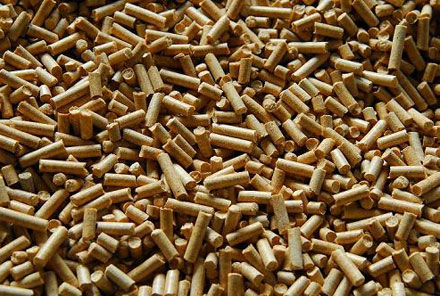
Respected German newspaper, Die Welt, published an article under the title “The naive carelessness of the wood burner.” Source: Treehugger
In fairness to the complexities of translation, the German word “Sorglosigkeit” might also be translated as “carefree-ness,” but either way the message is clear: anyone who bought into the idea that wood pellets can solve climate change issues related to heating with oil or coal has erred.
Is it true? Do we need to be concerned already that we are at “peak wood”? A closer look at the details in the article provide an amazing view of what some would call a trifecta of environmental, economic, and feasibility success.
Die Welt reports that approximately 400,000 Germans now heat with pellet stoves; thatrepresents about 1/2 of a percent of the population.
The article cites data from the Thünen Institute of International Forestry and Forest Economics indicating that 2.3 million tons of wood pellets serve these installations.
More interestingly, 85% of this wood comes from German forests, and is pressed in German pellet factories.
Martin Bentele, Executive officer of the German Wood and Pellet Energy Association (DEPV), notes that 90% of the wood converted to pellets is waste recovered from Germany’s furniture industry.
Why is Die Welt not extolling this enterprise? Germany is using waste to replace fossil fuels, while making jobs for their people!
Looking further for reasons to wring our hands or turn our backs on pellets, we find that German forests have increased between 2002 and 2012, the average age of trees is increasing, and the sustainable wood harvesting still has room for growth.
Of course, we need to keep performing energy and matter balance calculations, to employ a wide variety of alternatives so as not to use up any single resource, and to consider other air pollutants in addition to greenhouse gases. But it seems the facts in the story and elsewhere suggest that wood pellets remain a successful addition to the gamut of alternative fuels.
Perhaps Die Welt really did not want so much to cast aspersions on the Germans using pellets as to signal that rapid growth of wood heating in the rest of Europe, America, Canada, and elsewhere raises concern?
We should all look to Germany on this point: with progressive forest investment programs and balanced promotion of alternative energy, the country is living the green revolution the way we all hope it will be: with local products, locally and sustainably produced.







